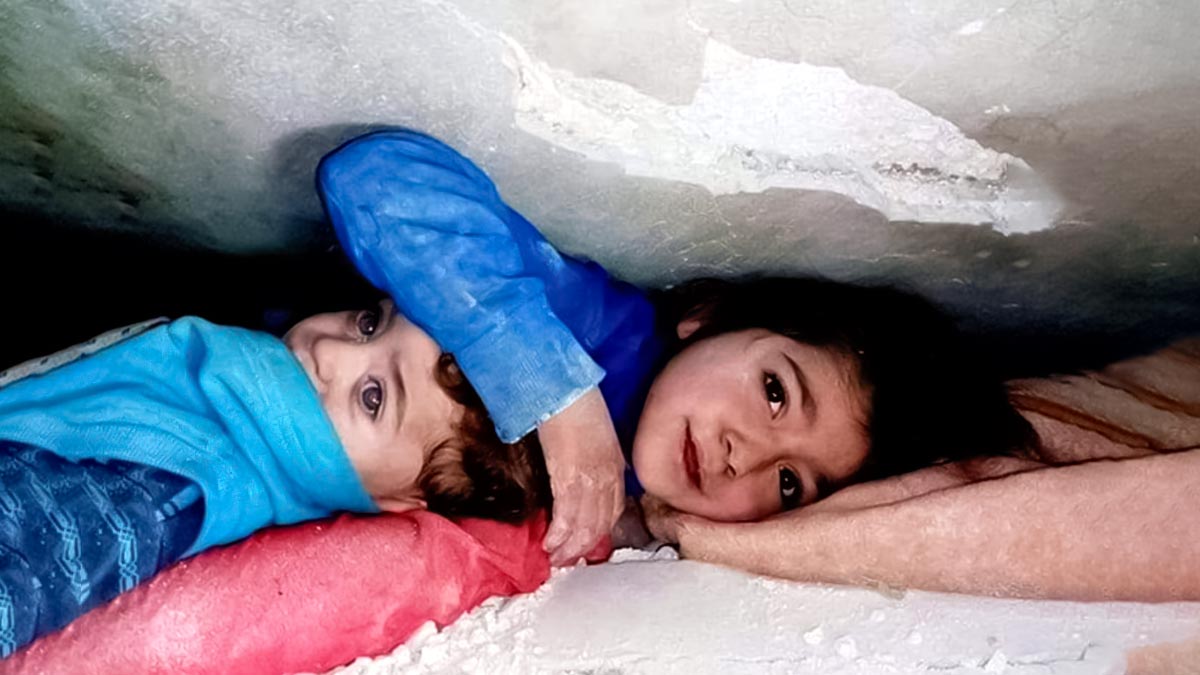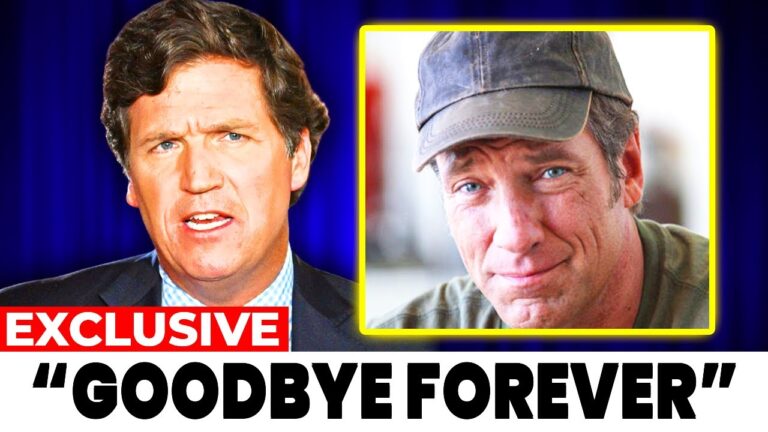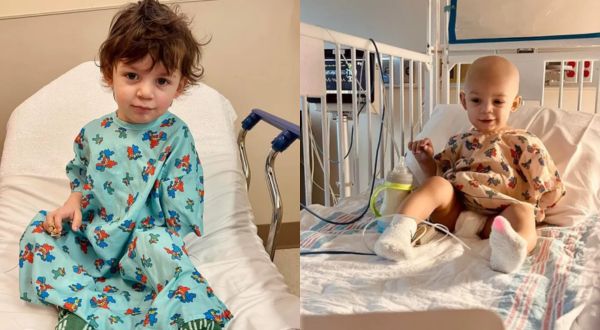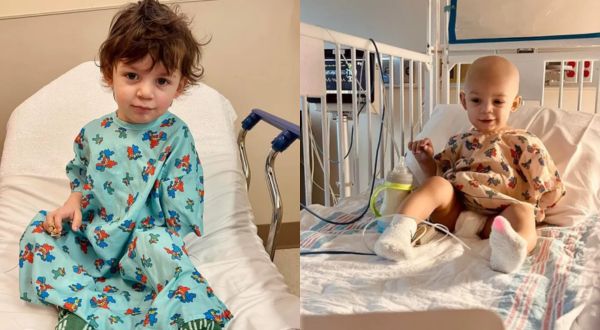When the ground began to shake beneath her, seven-year-old Amina thought it was thunder.
She was used to the low, distant rumbles that sometimes echoed through her small Syrian town — the sounds of construction, of passing trucks, of a world that had never been entirely still.
But this time was different.
This time, the earth groaned like a wounded animal.
Walls shuddered, ceilings cracked, and before Amina could even call for her mother, the world above her came crashing down.
It was February 2023 — a cold, gray morning that would soon become one of the darkest in Syria’s recent history. A powerful earthquake, measuring 7.8 on the Richter scale, tore through southern Turkey and northern Syria. Entire neighborhoods crumbled in seconds. Concrete folded like paper. Families were buried where they stood.
In the chaos, Amina and her four-year-old brother, Omar, had been sleeping side by side on a thin mattress in the corner of their room. When the tremor struck, they woke to a roar like thunder and glass exploding. Before they could run, the roof collapsed.

Then — silence.
Dust filled Amina’s lungs as she gasped for air. Everything was dark. She couldn’t move her left leg; it was pinned by a heavy concrete beam. Somewhere nearby, Omar whimpered softly.
“Don’t cry,” she whispered. “I’m here.”
In that moment, something remarkable happened — a little girl, trapped in darkness and pain, became a protector.
The first hours passed in confusion.
The ground kept trembling. Distant screams echoed through the ruins. Amina tried calling for help, but no one answered. Her throat hurt from the dust, her leg throbbed with pain, and she could barely see through the gray haze.
Omar kept crying — a small, trembling sound that broke her heart.
So she did what she had seen her mother do a hundred times when he was scared.
She began to tell him a story.
“Once upon a time,” she whispered, her voice shaking, “there was a brave little bird who got lost in a storm. The wind was loud, and the rain was cold, but the bird didn’t give up…”
Her voice was weak, but she kept going, inventing tales of courage and hope, of heroes who never stopped fighting. She wanted to distract him — and maybe herself — from the crushing weight of the rubble and the endless dark.
Hours turned into half a day. The cold crept in. Omar fell asleep in her arms more than once, only to wake crying again. Amina stroked his hair with her free hand, humming softly even as pain shot through her leg.
“Shh, it’s okay,” she murmured. “They’ll find us. You’ll see.”
Somewhere far above them, rescuers were digging — calling out names, lifting slabs of stone, searching for signs of life.
But for 17 hours, no one reached them.
When the rescuers finally found a gap in the collapsed ceiling, it was nearly dawn of the next day.
They had followed faint cries coming from deep inside the ruins of the family’s building. A team of volunteers and paramedics worked in silence, carefully removing chunks of concrete with bare hands.
When they finally saw movement — a tiny arm, trembling, wrapped around something — they stopped.
It was Amina.
Covered in dust, her face pale and streaked with dirt, she was shielding her brother’s head with her arm. Omar was asleep against her chest, breathing shallowly but alive.
One of the rescuers called out, “We’re here! We’re going to get you out!”
Amina opened her eyes. She blinked against the light of the flashlight, her voice barely audible.
“Take him first,” she whispered.
The rescuers froze. They had expected screams, panic, maybe pleas for help. But this child — this seven-year-old, trapped and in pain — was asking them to save her brother first.
Her words stunned everyone around.
The team quickly assessed the situation. They lifted Omar out first, wrapping him in a blanket, passing him through a narrow opening in the rubble. Only when he was safe did they return for her.
Amina was pulled out next — exhausted, shaking, her leg bleeding. She clutched the sleeve of the rescuer nearest to her and whispered again, “He’s okay, right? My brother… he’s okay?”
“He’s safe,” the man told her gently. “You both are.”

As the ambulance doors closed, one of the paramedics turned away to hide her tears.
The image of that tiny girl, shielding her brother under concrete for 17 hours, burned into her memory.
Later, a volunteer shared a photo of the siblings — both wrapped in blankets, still dusted with gray. Within hours, it spread across social media.
People around the world began calling her the little hero of Syria.
Messages poured in: prayers, drawings, words of admiration. “Amina is the light in our darkness,” one post read. Another said, “In her, we see the best of humanity.”
Even amid tragedy, her bravery became a symbol of hope — proof that love can bloom even in the ruins.
Doctors said her leg would heal with time. Omar suffered only minor injuries. But the emotional scars would take longer to fade.
When reporters later asked what kept her calm in those long, terrifying hours, Amina gave a shy smile.
“I had to be brave,” she said softly. “Because he’s little, and I’m the big sister.”
Her words were simple, but they carried a weight beyond her years.
Psychologists later pointed to her story as a powerful example of “protective empathy” — the instinct to care for others even under extreme trauma. But Amina’s story was not just about survival; it was about the quiet strength that defines humanity itself.
In a region devastated by years of war, poverty, and now natural disaster, her courage reminded the world that heroism isn’t about strength or power — it’s about love.
Weeks later, Amina and Omar were reunited with their parents, who had also survived the quake after being trapped in a nearby building. When Amina saw her mother again, she ran — limping slightly — and fell into her arms, sobbing for the first time since the earthquake.
Her mother kissed her hair and whispered, “You saved him. You saved us all.”
News outlets across the globe ran headlines about her story. UNICEF called her “a symbol of hope for every child living through disaster.” Donations poured in for relief efforts in Syria and Turkey.
But Amina herself seemed unaware of the attention. When someone asked what she wanted now, she said, “I just want to go home and play with Omar again.”
And so, in a world fractured by disaster, where entire cities had fallen to dust, one small girl reminded humanity what it means to love.
She had no superpowers, no fame, no camera crew. Just a child’s heart — pure, fearless, unbreakable.
For seventeen hours, she held her brother close in the dark.
And when help finally came, her first words were not for herself, but for him.
“Take him first.”




